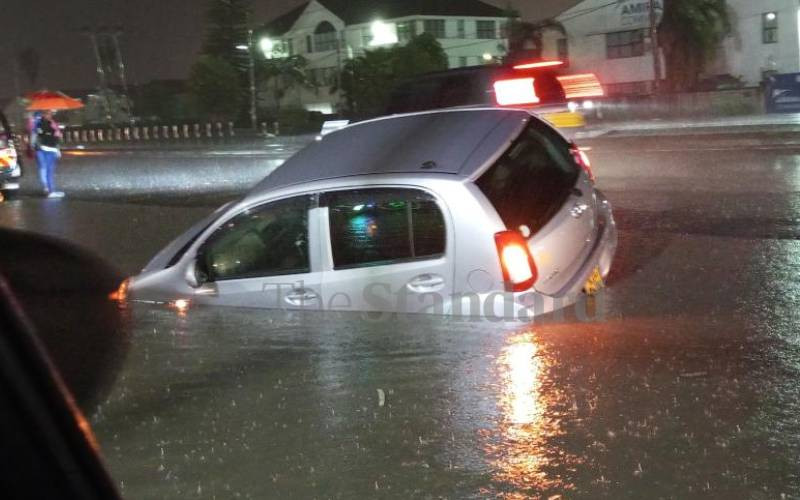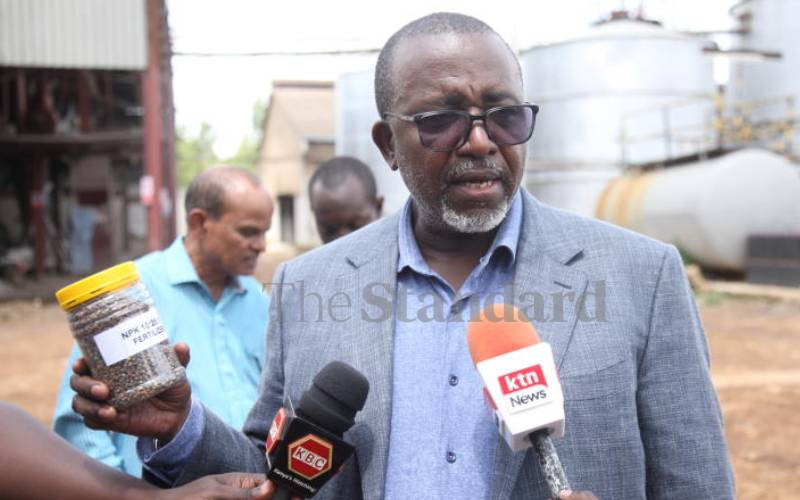By Editorial
This cannot be overstated; national security is the responsibility of each and every one of us. Our collective security as a nation is too important to be left in the hands of a handful ill-equipped and demotivated security personnel.
It is very easy to point an accusing finger at the police every time terrorists strike. It is even easier to narrow the blame down to the Interior minister and the Inspector General of police with loud calls for their resignation. All peace loving Kenyans would want their security assured as they go about their daily businesses. But not all of us are willing to take responsibility for the safety of our neighbourhoods.
There is no denying that criminal elements live among us; they are our relatives, friends and neighbours. It is a lot easier for citizens to identify these criminals and point them out to law enforcers for appropriate action to be taken before they strike.
This is a proactive and participatory approach in the management of security. With the war on terror taking a dangerous and unpredictable turn, traditional means of combating crime are being rendered ineffective.
The resurgence of terror aggression has not just increased in intensity, but soft targets such as churches and populated but down-market residential and commercial zones seem to be attracting more attacks as security forces concentrate surveillance on upscale targets.
The recent attacks on the Likoni church in Mombasa and a downtown restaurant in Eastleigh, Nairobi in the span of a fortnight left 12 people dead, throwing security agencies into a spin as they tried to pre-empt where the next attack would be. Whereas it is the mandate of police to protect life and property and enforce law and order, this mandate will remain hollow if ordinary citizens do not play their role in ensuring a secure country.
Police will not be at every corner of the country to ensure our security. But wherever there is a criminal, there are most likely hundreds of law abiding Kenyans with a good number having good reason to suspect criminal activities on people known to them.
The community policing approach was a best practice in our situation. It places a premium on mutual cooperation between police and the public. It is our civic duty to work with police to identify criminal elements in our midst and subject them to the rule of law. Unfortunately, the initiative seems to have been relegated to the back burner.
The recently launched Nyumba Kumi initiative, based on the principle of knowing your neighbour, is another great opportunity for all of us to play an active role in securing our society. Unfortunately again, the fire in this initiative is slowly dying out with a big number of urban dwellers, which are apparently more prone to terror attacks, snubbing it.
And only last week, yet another initiative – Operation Usalama Watch – was launched to specifically deal with the threat of terrorism. We must follow up and follow through on all security initiatives aimed at ensuring our safety.
If we are going to be honest with ourselves we will admit that we are indolent and unmoved by the plight of others — we are only shaken from our comfort zones when the threat comes closer home. In so doing, we have become derelict in our duty to protect one another.
Lest we forget, Kenya is at war with a disguised enemy who won’t announce his target before he strikes. For us to win this battle, we must become more patriotic in our contribution to the war effort. We must not undermine this effort by collaborating with the enemy for token gain. Immigration officials manning our border points and ports of entry must not allow themselves to be compromised to allow criminals into our country.
The enemy will flourish and crash us in an environment of suspicion and mistrust between the police service and the public. But if we appreciate that both the security forces and law abiding Kenyans have a common enemy, we shall unite and win the battle. Are you your brother’s keeper?
Stay informed. Subscribe to our newsletter
 The Standard Group Plc is a
multi-media organization with investments in media platforms spanning newspaper
print operations, television, radio broadcasting, digital and online services. The
Standard Group is recognized as a leading multi-media house in Kenya with a key
influence in matters of national and international interest.
The Standard Group Plc is a
multi-media organization with investments in media platforms spanning newspaper
print operations, television, radio broadcasting, digital and online services. The
Standard Group is recognized as a leading multi-media house in Kenya with a key
influence in matters of national and international interest.
 The Standard Group Plc is a
multi-media organization with investments in media platforms spanning newspaper
print operations, television, radio broadcasting, digital and online services. The
Standard Group is recognized as a leading multi-media house in Kenya with a key
influence in matters of national and international interest.
The Standard Group Plc is a
multi-media organization with investments in media platforms spanning newspaper
print operations, television, radio broadcasting, digital and online services. The
Standard Group is recognized as a leading multi-media house in Kenya with a key
influence in matters of national and international interest.







